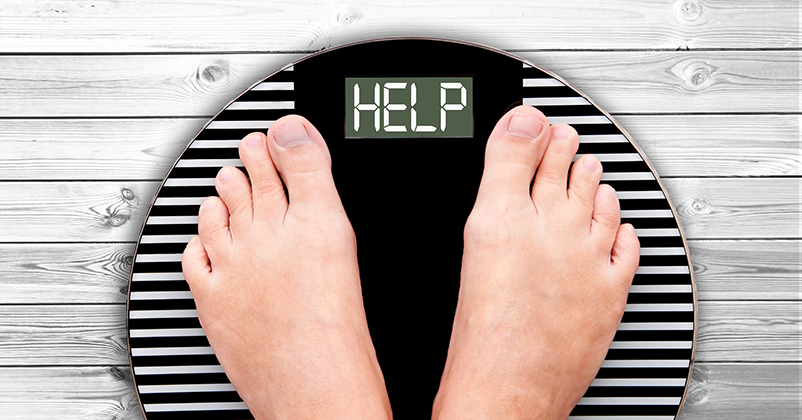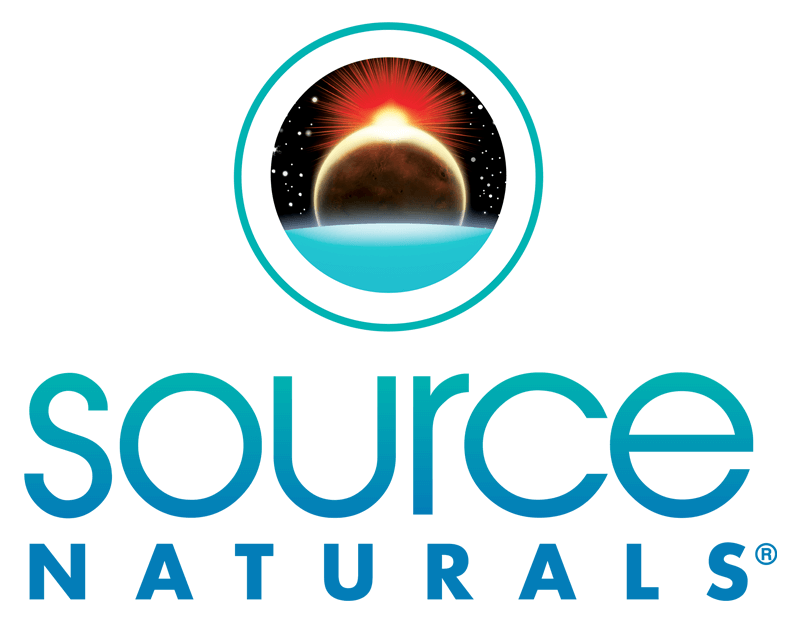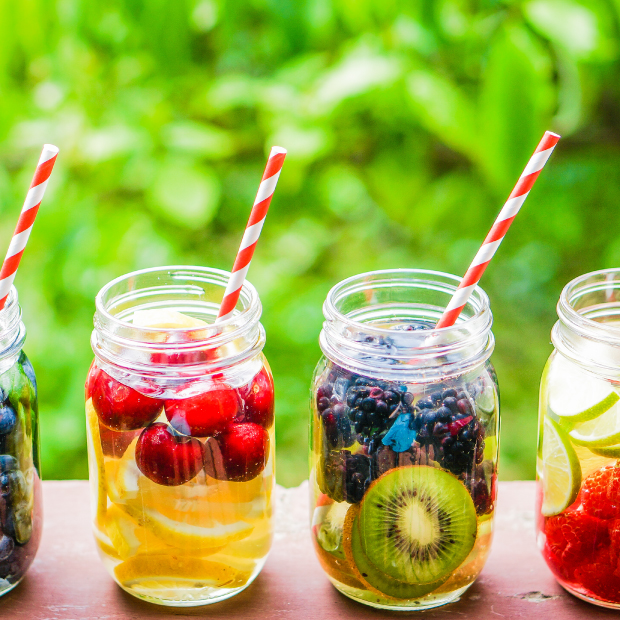
We’ve all heard of a “vicious cycle,” the idea that one bad event leads to another and then another in a self-perpetuating circle. Now, when it comes to the mechanisms of obesity, new research has confirmed that—in mice, at least—microbiology is responsible for a specific vicious cycle of fat accumulation.
An Obesity Cycle Uncovered in Mice
Like all plants and animals on Earth, we share our lives with our microbiome, the trillions of microorganisms that live in our bodies. For every human cell, experts estimate that we carry from 3 to as many as 10 microbes, which support many vital functions that our bodies can’t complete on our own.
Working with mice, whose microbiome is similar to ours, Yale researchers have found that the gut microbiome can trigger responses to food—specifically very high levels of fat—that create a vicious cycle of obesity. Here’s how it works:
- A very high-fat meal causes microbes in the mouse’s gut to turn that fat into a substance called acetate. The more fat the mouse consumes, the more acetate its body produces.
- The acetate circulates in the bloodstream and reaches the mouse’s brain. It sends signals via the vagus nerve to the pancreas to pump out more insulin, the hormone that allows the body to use or store all this incoming energy. The mouse’s fat cells helpfully store the excess by making more fat cells.
- When the acetate reaches the mouse’s gut, specialized cells there secrete ghrelin, a hormone that (among other things) promotes fat storage and stimulates appetite—especially for fat.
- Now the cycle kicks into overdrive. Stimulated by those hormones, the mouse eats more (especially more fat). Its body creates more acetate and makes more fat. The cycle continues, fat accumulates, and the result is a very fat mouse.
Here’s the discovery: When researchers blocked the nerve signals from the brain, the acetate no longer boosted insulin levels—stopping the vicious cycle of fat accumulation in its tracks and confirming the connection between the gut microbiome and obesity.
What’s the Point of Such a Fat-Building Cycle?
In the animal kingdom, this acetate cycle may serve an important evolutionary role: It may prompt animals to fatten up on calorie-dense foods whenever they’re plentiful, which in turn can help them survive hard seasons like winter, or times of flood or drought, when food is scarce.
Unfortunately, a biological cycle that’s good for a wild mouse’s survival can be a terrible liability for a pet mouse, who doesn’t need to worry about his next meal. If the pet mouse eats a great deal of fat, he’ll predictably gain weight…with obesity’s health issues as a consequence.
The question is now before researchers extending this investigation to people: Could a cycle that may have helped our prehistoric hunter-gatherer ancestors survive seasons, along with unpredictable floods and droughts, be harming our health today?
Feeding the Cycle with Bad Information
Think of food as information, a perspective that’s been in nutrition circles for quite a while. The nutrients in your food convey information in the form of nutrients to your body; a healthy diet, then, is good information that supports balance throughout your body systems.
When you eat, the food molecules trigger events both good and bad, which are mediated by current demands (are you running a race or watching TV?) and the quality of the food (is it nutritious or empty calories?). Vitamins, minerals, fat, protein, fiber, and other nutrients in the food provide information that your body—and your microbiome—uses to complete myriad processes, from forming and repairing tissue to sending nerve impulses, from driving digestion to maintaining metabolism and all the other functions happening in your body at any given time.
Unfortunately, our typical eating habits today don’t consistently deliver good information. The Standard American Diet (abbreviated SAD, for good reason) features far more fat, low-quality carbs, and fewer real nutrients than anyone requires. Many of our food choices can be more about craving or cost than actual need, which drives nutritional imbalances in our diets and predictable, observable consequences for our bodies, including obesity.
What if, like the mice in the study, we’re actually feeding a vicious cycle that dooms us to gaining weight?
In the Meantime, Let’s Go for the Good Info
Researchers are following up on the mouse-model results to see if they hold true for humans, too. If so, they could lead to new and more effective weight control interventions that can interrupt or even prevent the vicious obesity cycle, giving them a much better chance for lasting success.
In the meantime, we’re seeing science continue to reveal and validate what we at Source Naturals® have long believed: Our bodies are interrelated systems, connected by and responsive to the signals that pass between them. Let’s use the perspective of food as information as a new way to understand our eating choices—let’s stop feeding vicious negative cycles and build positive ones instead.
References
To learn more about this potentially groundbreaking research and the idea of food as information for your body, try these links.
Carolyn Denton, LN, “How Does Food Impact Health?” University of Minnesota, Center for Spirituality & Healing blog: Taking Charge of Your Health Wellbeing, 2008. Accessed Aug. 26, 2016.
Rachel J Perry, et al., “Acetate mediates a microbiome–brain–β-cell axis to promote metabolic syndrome,” Nature 534, 213–217 (Jun. 9, 2016), doi:10.1038/nature18309.
Tina Hesman Saey, “Obesity’s weight gain message starts in gut,” ScienceNews.org, Jun. 8, 2016. Accessed Aug. 25, 2016.
Wikipedia, “Microbiota,” accessed Sep. 6, 2016.
Ziba Kashef, “Study reveals how altered gut microbes cause obesity,” Yale News, Jun. 8, 2016. Accessed Jul. 25, 2016.









